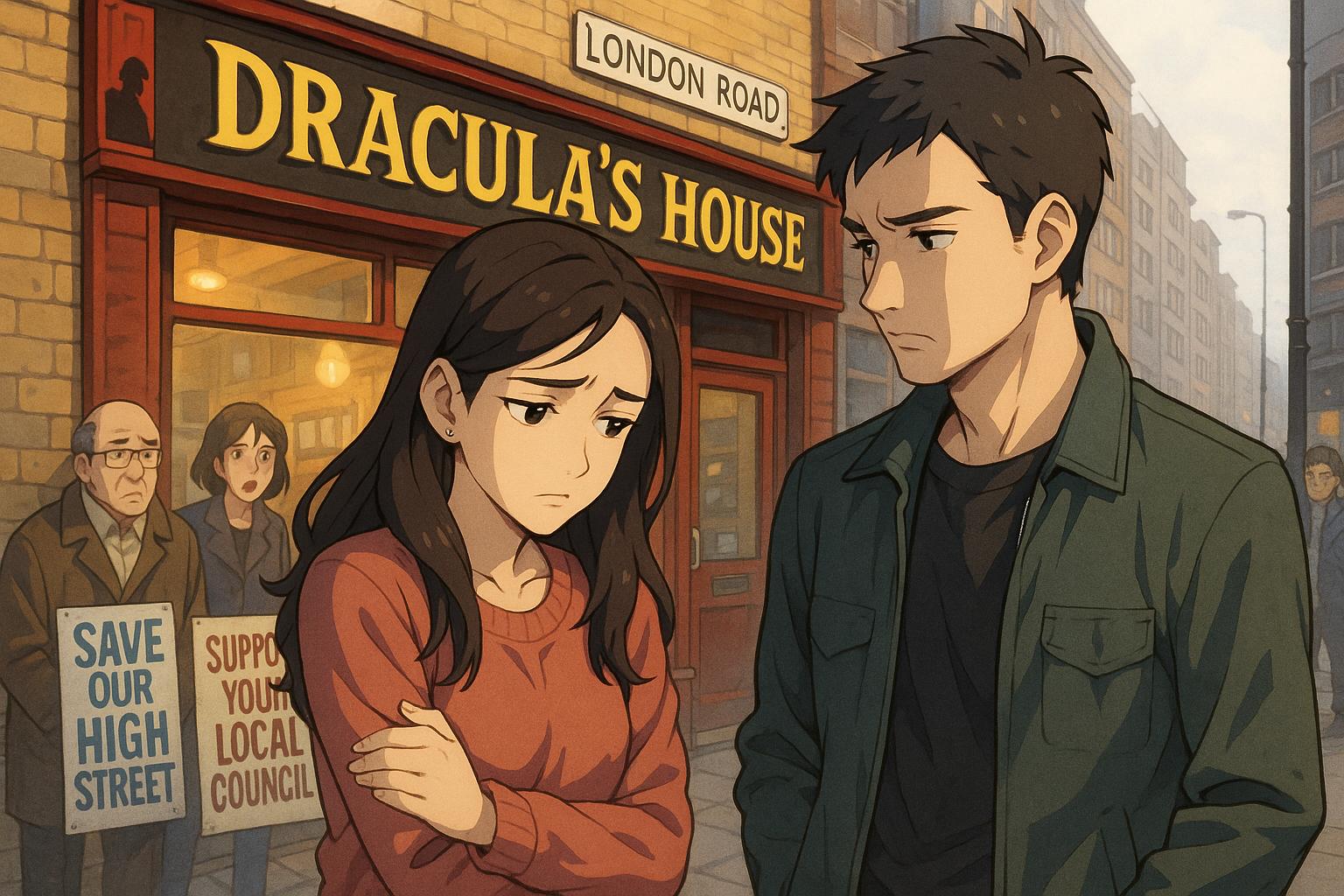In Brighton, the application for an alcohol licence by Dracula's House, located on London Road, has ignited concerns among local residents and officials regarding its potential impact on street drinking and local anti-social behaviour. The owners, Ionut and Ioana Cimpoesu, proposed selling Romanian alcoholic products but limited to 5% of their total inventory, with all items kept behind the counter. Their intentions include fostering a community atmosphere focused on Romanian cuisine, following their family's successful venture in Horsham.
However, the response from local stakeholders has been largely negative. Thirteen neighbours formally objected to the licence application, alongside local councillor Sue Shanks, who highlighted that London Road is already saturated with off-licences. The council's policy typically discourages the establishment of additional alcohol outlets in areas already experiencing issues related to anti-social behaviour, late-night drinking, and public disturbances.
Local commentary reflects a common sentiment that the area is overrun with off-licences. Resident Ashok Lenkala articulated frustrations about litter and public urination linked to street drinking, calling attention to the challenges faced by families living nearby. He noted, “On Friday and Saturday nights, I’ve seen so many people urinating on our street. It’s unimaginable.” This situation illustrates a broader trend in urban spaces where increasing numbers of licensed businesses can exacerbate social concerns rather than alleviate them.
Philip Wells, chair of the London Road Local Action Team, echoed these worries, cautioning that simply being a well-run establishment should not allow for exceptions to council policies aimed at curbing the proliferation of alcohol licences. He questioned the implications of setting such precedents, urging the licensing panel to adhere to their existing regulations.
The Cimpoesus' application also faced scrutiny regarding its marketing, as there were concerns that the store's branding prematurely suggested an off-licence without appropriate licensing. The couple have expressed a willingness to engage with the community and local government in a bid to address these concerns effectively. Notably, Mrs Cimpoesu indicated that they seek to avoid any association with the issues of anti-social behaviour she attributes to cheap alcohol, asserting that their pricing structure would not contribute to this problem.
The licensing panel is expected to reach a decision within five working days, a process that underscores the ongoing balance councils must strike between encouraging local businesses and safeguarding community welfare. Recent licensing decisions in Brighton demonstrate this precarious balance; for example, a neighbouring café was granted a licence despite objections, as they agreed to various conditions that aimed to mitigate disturbance.
The context of this situation is critical, particularly when considering the wider trends in alcohol licensing within the city. The council's regulatory framework has consistently aimed to manage the quantity and behaviour of licensed establishments, following the framework set by the Licensing Act 2003. Each application is evaluated not just on its merits but through the lens of community impact and safety, reflecting a holistic approach to urban management.
As Brighton continues to grapple with these complex dynamics, the outcome of the Dracula’s House case may set a significant precedent for future licensing considerations and the ongoing discourse surrounding responsible alcohol retail in bustling urban neighbourhoods.
Ultimately, the intersection of business interests and community concerns will likely remain a focal point for discussions about urban development and public safety in Brighton’s ever-evolving landscape.
Reference Map
- Paragraphs 1, 2, 3, 4, 5, 6, 7, 8, 9.
Source: Noah Wire Services
